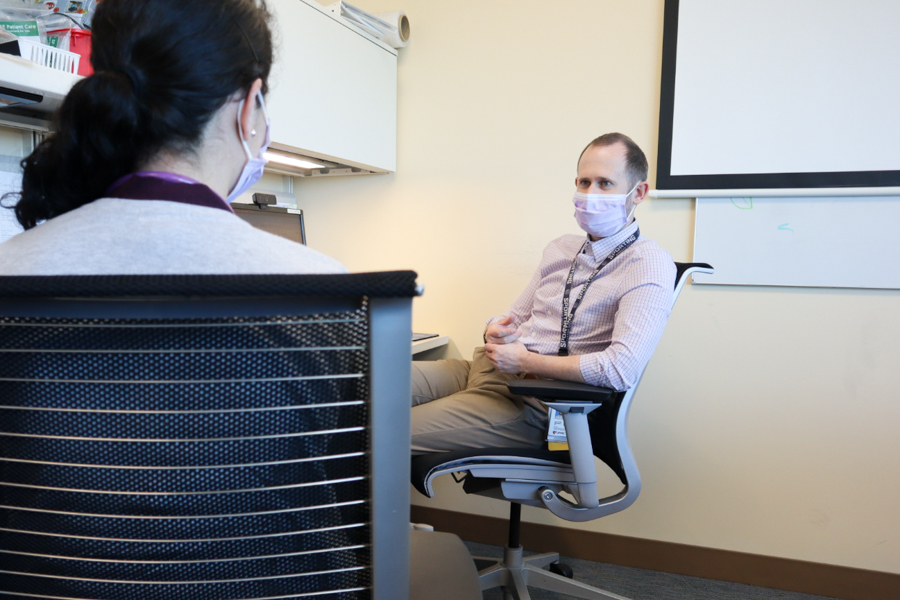Clinical Experience and Education

UNMC PID Fellowship Program Description
Each fellow follows an individualized learning plan (ILP) that directs their unique educational needs.
- Clinical Microbiology at UNMC (4 weeks)
- Inpatient ID Consultation Service (6-7 months)
- Research (4-5 months)
- First Year Fellow(s) will:Learn to plan initial work-up and management of pediatric infectious diseases
- Develop an understanding of pathogenesis natural history
- Learn microbiological techniques and how to use them
- Review the basic function of the immune system and immunological basis of disease
- Learn pharmacology, pharmacokinetics and pharmodynamics of antibiotics and their interaction with other drugs
- Be able to design a research protocol, write a proposal, and apply for funding
- Develop an understanding of FDA regulations and IRB policies for conducting research
- Learn how to teach on rounds and at the bedside
- Be able to prepare and deliver lectures
- Attend the University-wide fellows core curriculum series
- Inpatient ID Consultation Service (3-4 months)
- Research (8-9 months)
- Second Year Fellow(s) will: Manage complicated infectious diseases, understand their pathogenesis, and natural history
- Understand hospital epidemiology and infection control; statistical methods
- Learn how clinical trials are conducted
- Implement their research protocol and submit results for presentation at national/international meetings
- Inpatient ID Consultation Service (3-4 months)
- Research (7-8 months)
- Hospital Epidemiology and Infection Prevention (2 weeks)
- Antimicrobial Stewardship (2 weeks)
- Optional Electives (include Global Health, Public Health, STI clinic)
- Third Year Fellow(s) will:Be able to manage complicated disease in children effectively and independently
- Be prepared for a role in hospital epidemiology and infection control
- Be effective in teaching both individuals and groups of learners in clinical settings, classrooms, lectures, and seminars using electronic and print modalities
- Prepare an original research manuscript for publication and/or presentation
General ID Clinic
- Years 1 and 3
- Year 2 when no HIV or travel clinic that week
- 1/2 day per week when not on inpatient ID consultation service
- Emphasis on fellow seeing a mix of hospital follow-up patients that they also saw in the hospital as well as new outpatient consults. All patients are staffed by an attending.
UNMC Specialty Care Clinic
- Year 2
- Continuity experience of the care of HIV patients in a multidisciplinary and family-centered ambulatory clinic
Travel Clinic
- Year 2
- Experience in how to prepare patients for travel including administration of recommended vaccines
TB Clinic
- Years 1-3
- 12 sessions with supervising attending assigned to each session
Case Conference: Fellows attend a weekly City-Wide ID case conference attended by infectious disease, microbiology, pharmacy, and pathology clinicians. Fellows are expected to present a case and literature review monthly at this conference.
Journal Club: Pediatric journal club is held every other month and fellows are expected to present at this conference.
Core Curriculum: A monthly core conference series covering the spectrum of Pediatric Infectious Diseases as well as basic immunology is provided.
Board Review: A monthly conference series where a faculty member reviews high yield topics and board style questions with fellows.